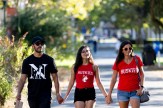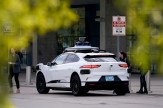Northeastern processes its one millionth coronavirus nasal swab test
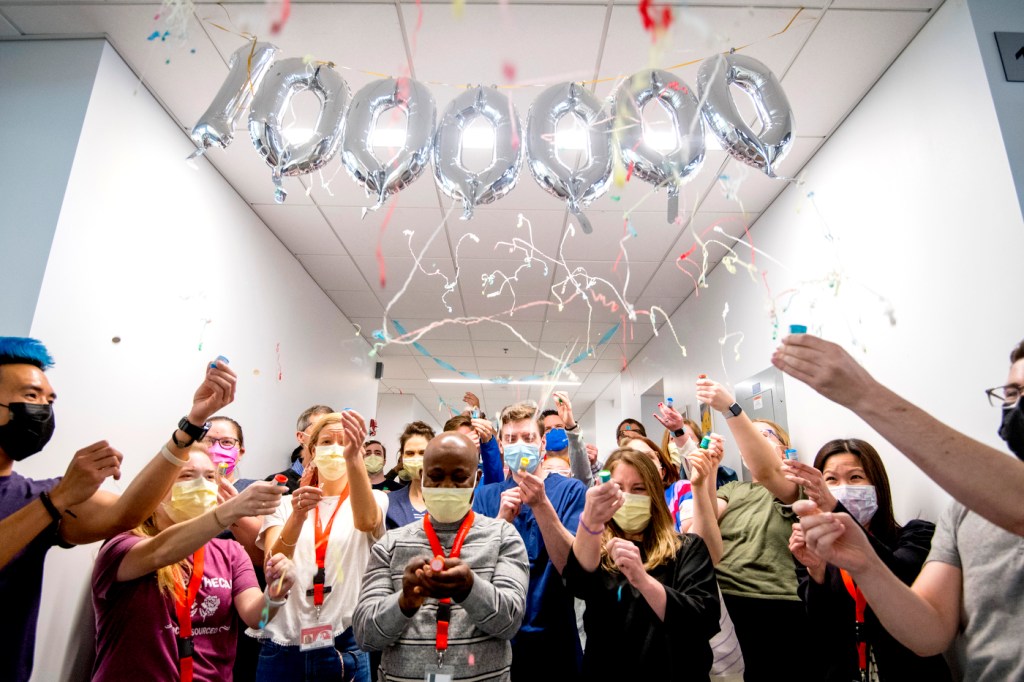
With clenched fists thrust into the air, beaming smiles, and high-fives, white-coated lab technicians at Northeastern on Tuesday celebrated a landmark achievement in the university’s efforts to promote safety during the pandemic—the processing of the one millionth coronavirus nasal swab test.
At Northeastern’s state-of-the-art Life Sciences Testing Center in Burlington, Massachusetts, staff shared in the thrill of the accomplishment with confetti poppers and a chocolate sheet cake that had “One Million Samples” written in icing. Numerical mylar balloons arranged in “1000000” hung from the ceiling.
“The testing center has been instrumental in keeping Northeastern open and safe,” said Jared Auclair, who oversees the testing facility. “Because of our stringent testing regime—every three days for students—we can catch those positive samples early.”
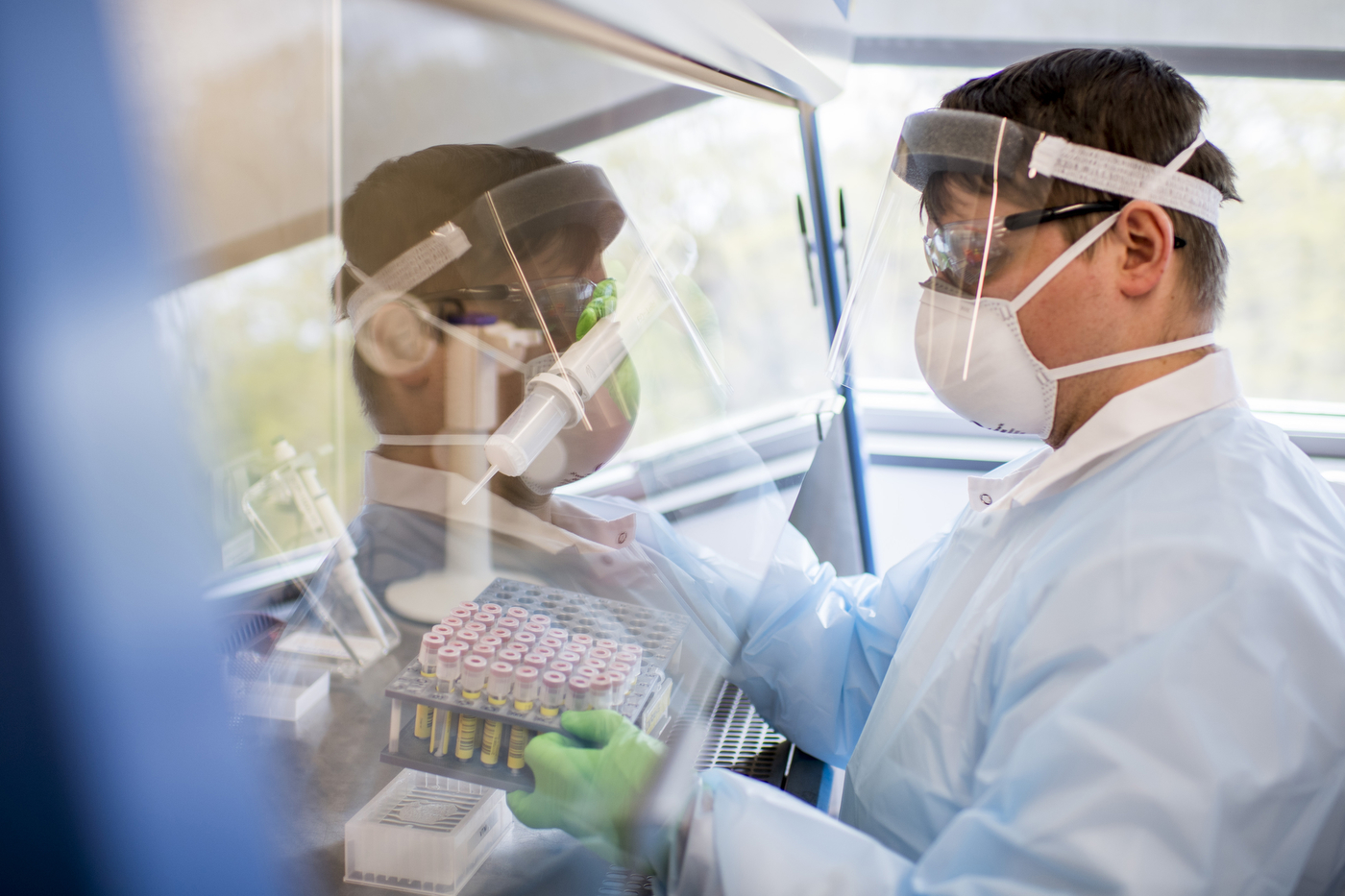
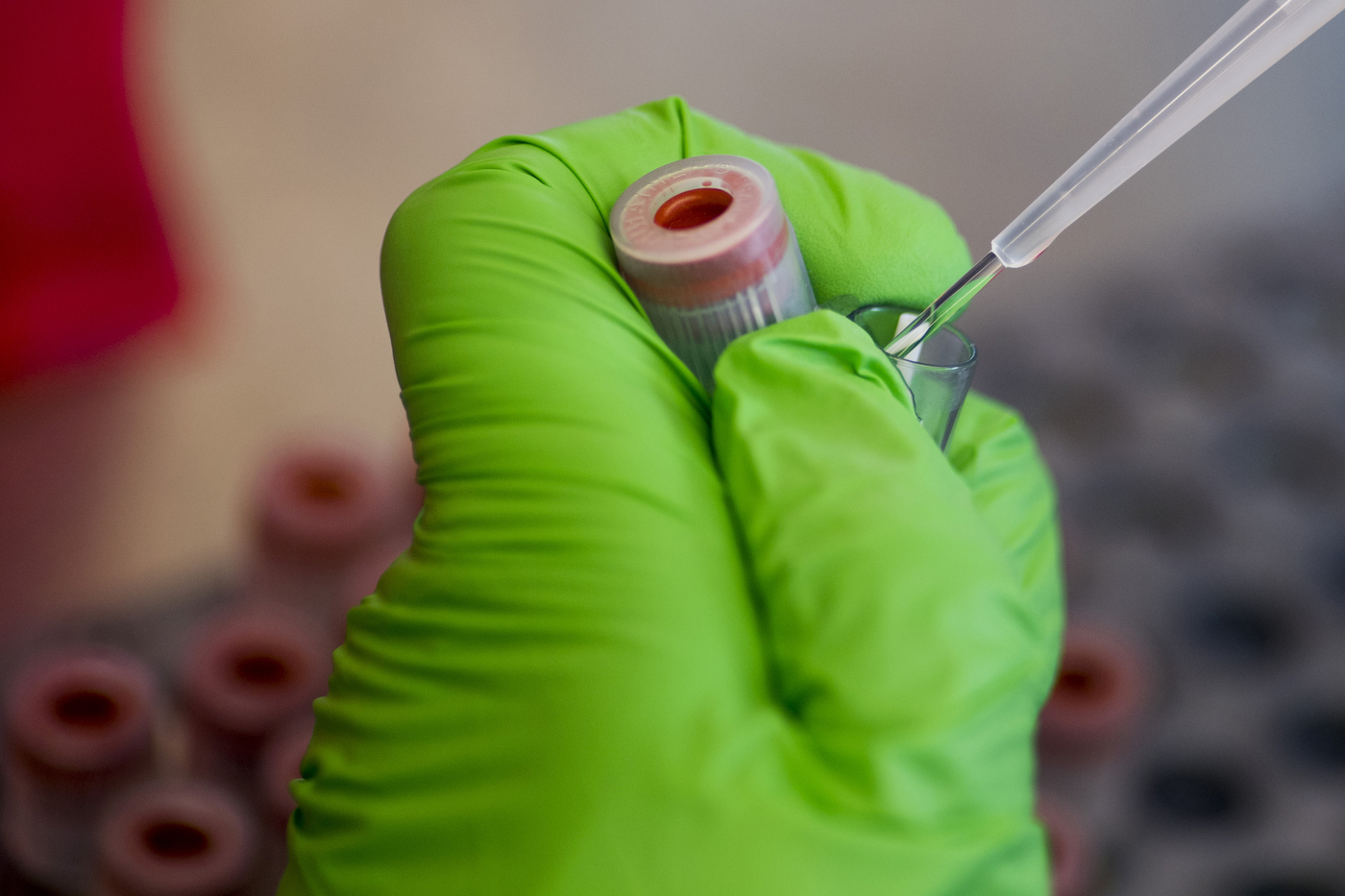
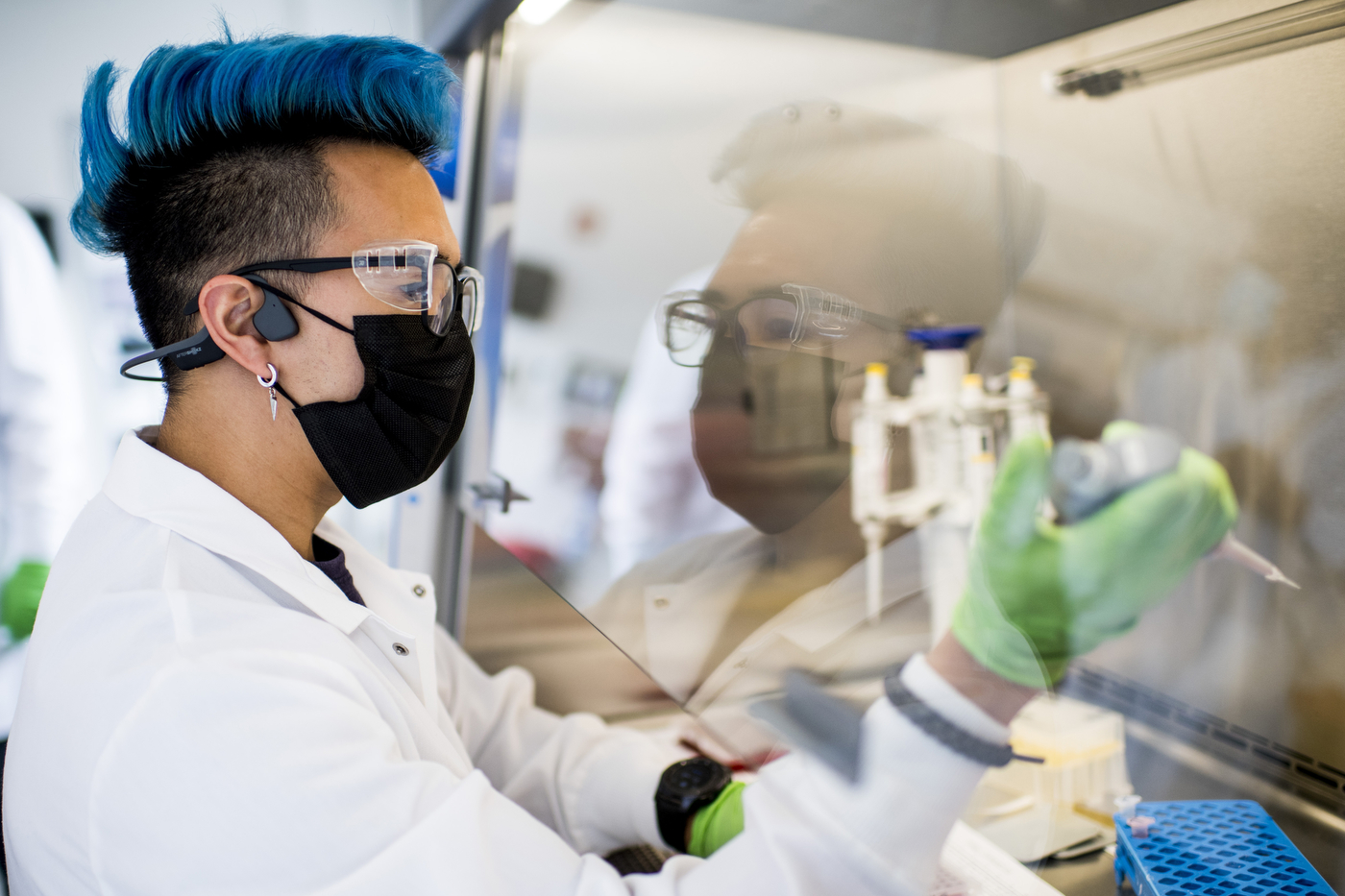
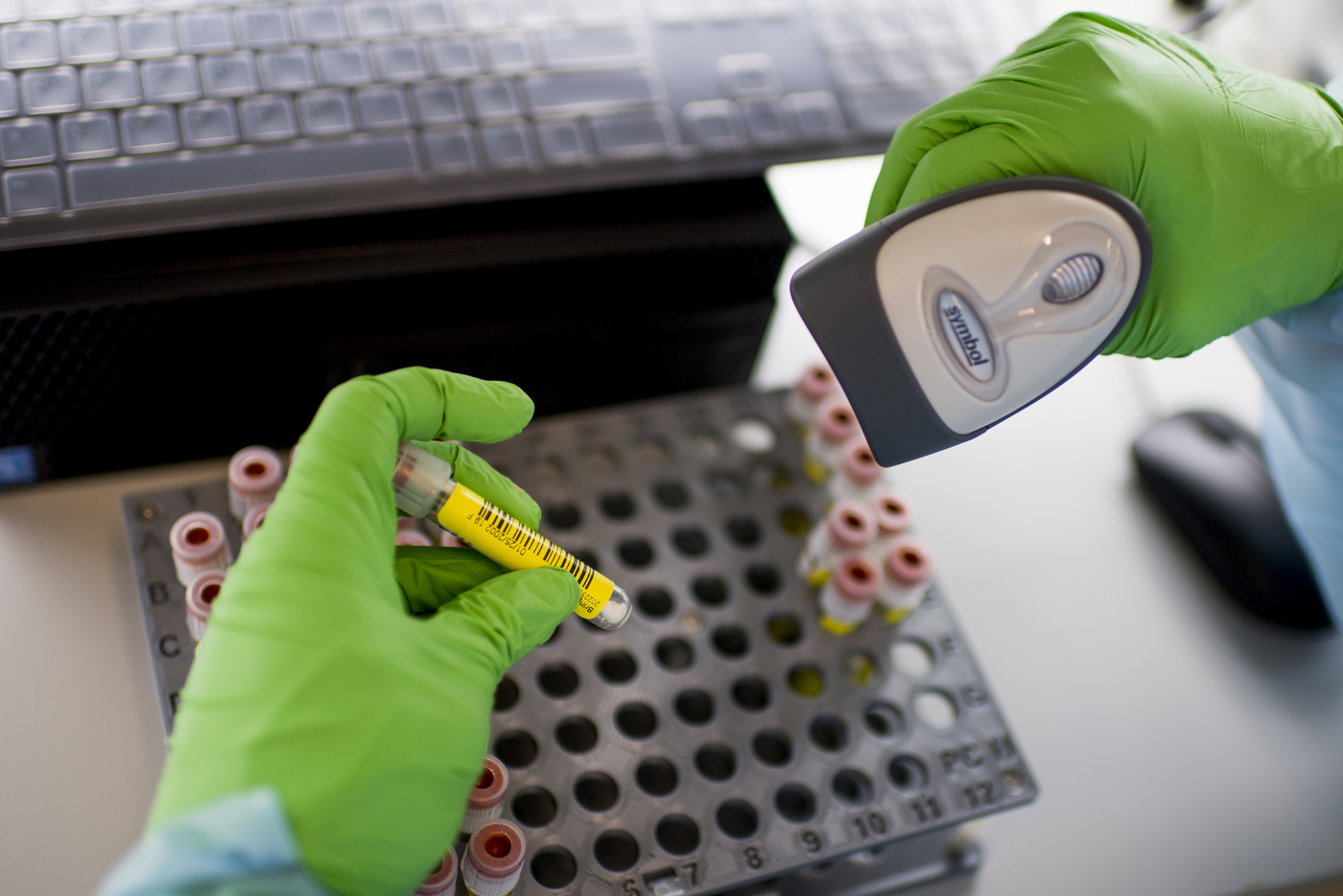
The facility has been averaging 35,000 tests a month, or just under 5,000 a day, dating back to August 17, 2020, when it processed its first batch of swabs. The testing center was first built in July and had about nine employees. It now has approximately 80 research scientists, molecular scientists, clinical specialists, and others handling samples from Northeastern’s campuses in Boston, Charlotte, N.C., and Portland, Maine.
Over time, operations have become more efficient as equipment has been added and test processing techniques have improved, allowing for greater numbers of tests and quicker turnaround times, according to Sarah Sanderson, a supervisor and one of the first employees.
“Now it all runs really smoothly,” she said. The center’s results are displayed on the university’s testing dashboard.
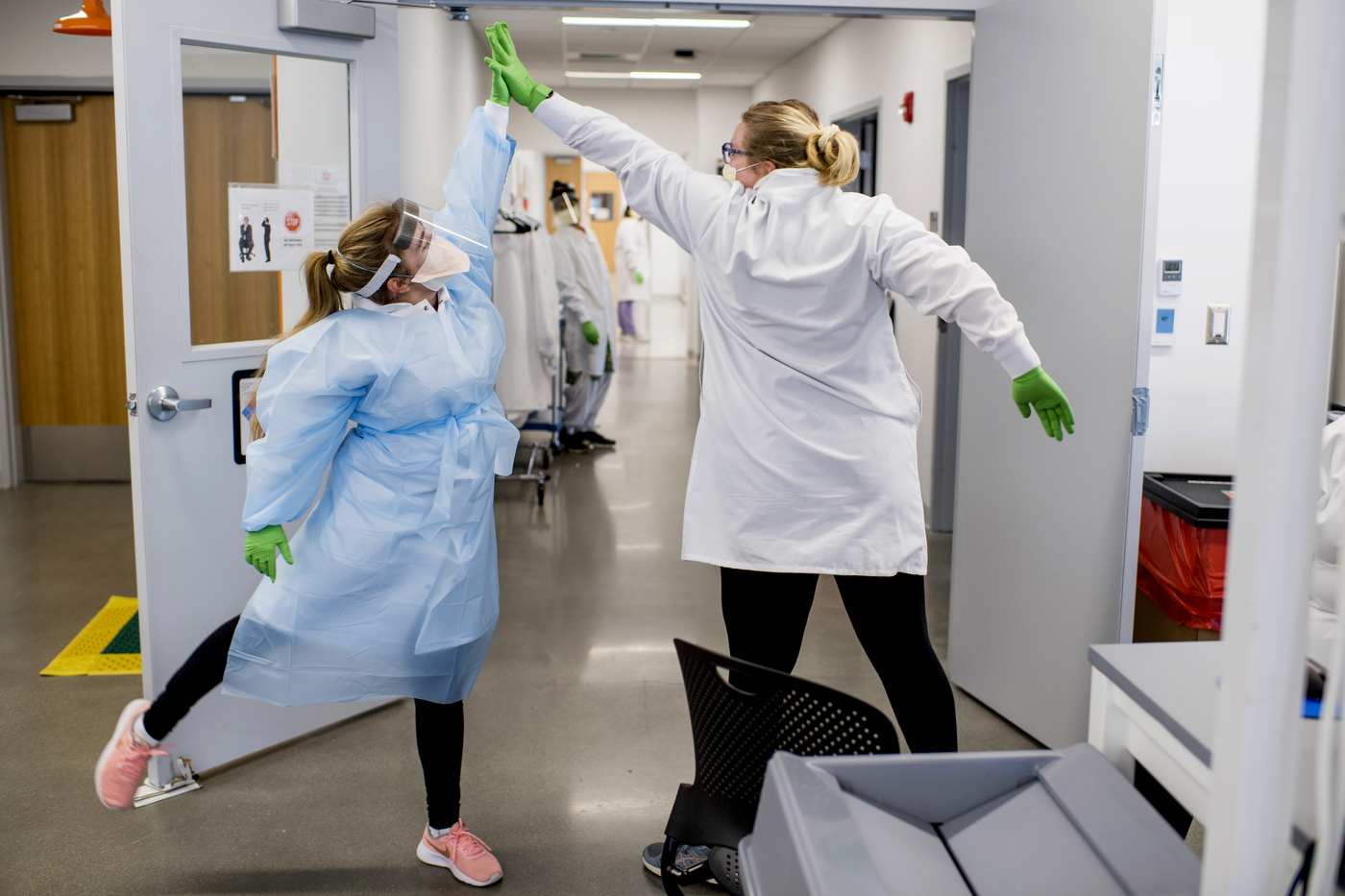
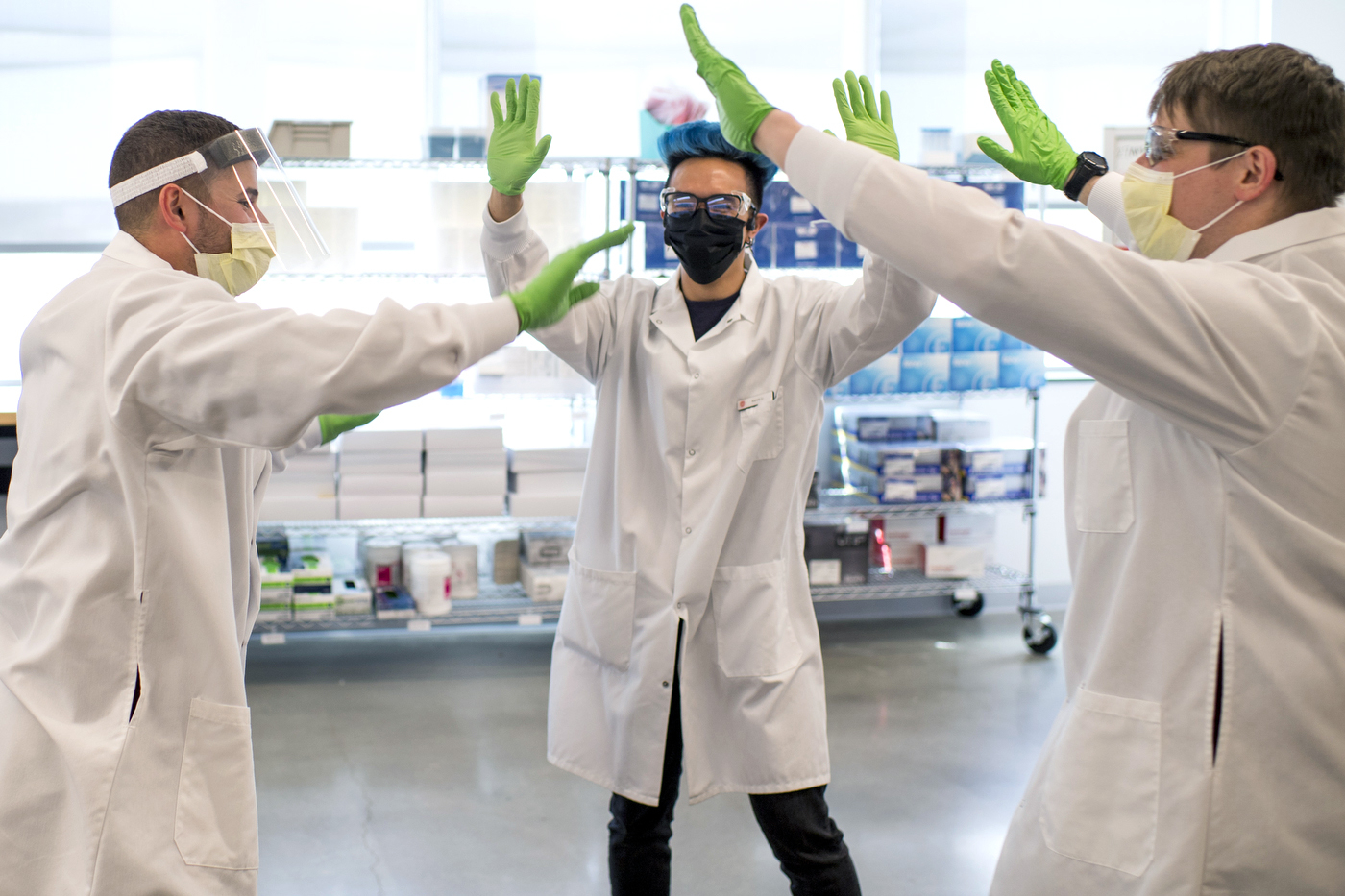
So much has changed since she started working at the testing center about two weeks after it opened. Sanderson remembers when the lab had four microwave oven-size machines that were used for polymerase chain reaction (PCR), the gold standard of testing.
“The reaction is what tells us if the test is positive or negative” for SARS-CoV-2, the virus that causes COVID-19, Sanderson said. Today the testing center has 16 PCR instruments, four times more than when it first opened its doors. Each instrument can process 94 samples in an hour. Results are known in about 36 hours.
The center initially expected to process 100 samples a day, gradually ramping up to 1,000 a day. “We ended up getting 1,500 on the first day, not 100,” Sanderson recalled, laughing.
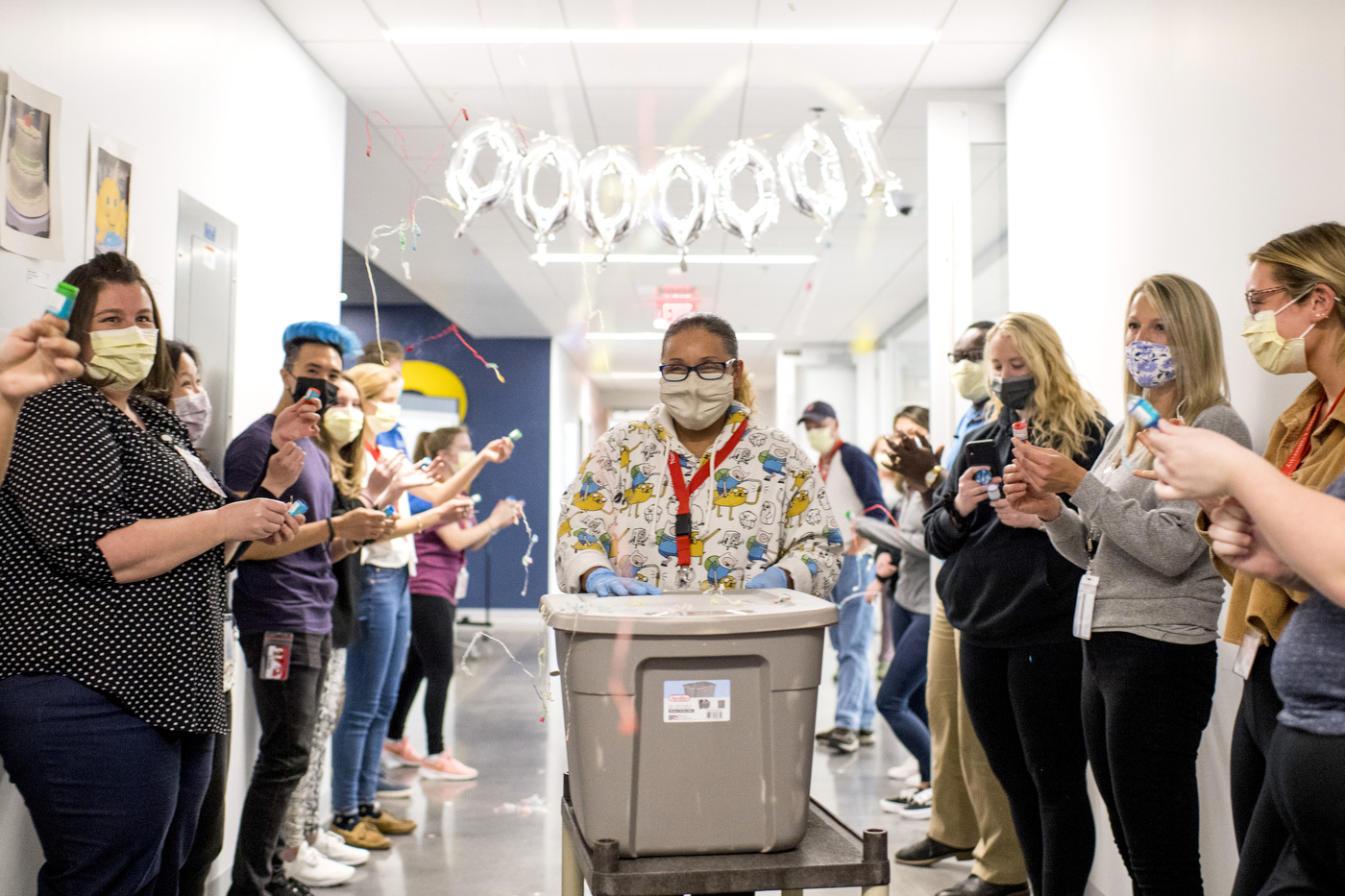
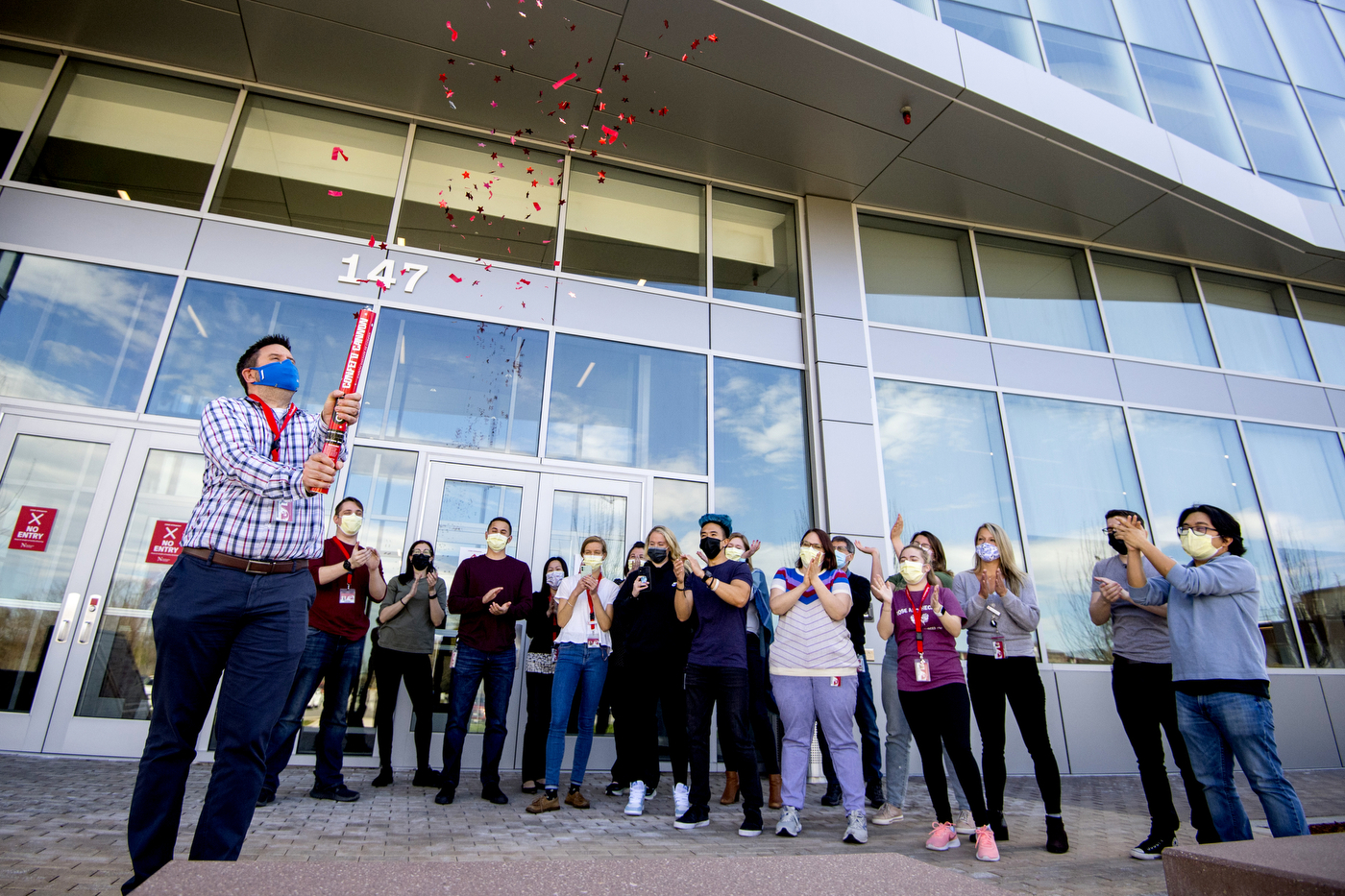
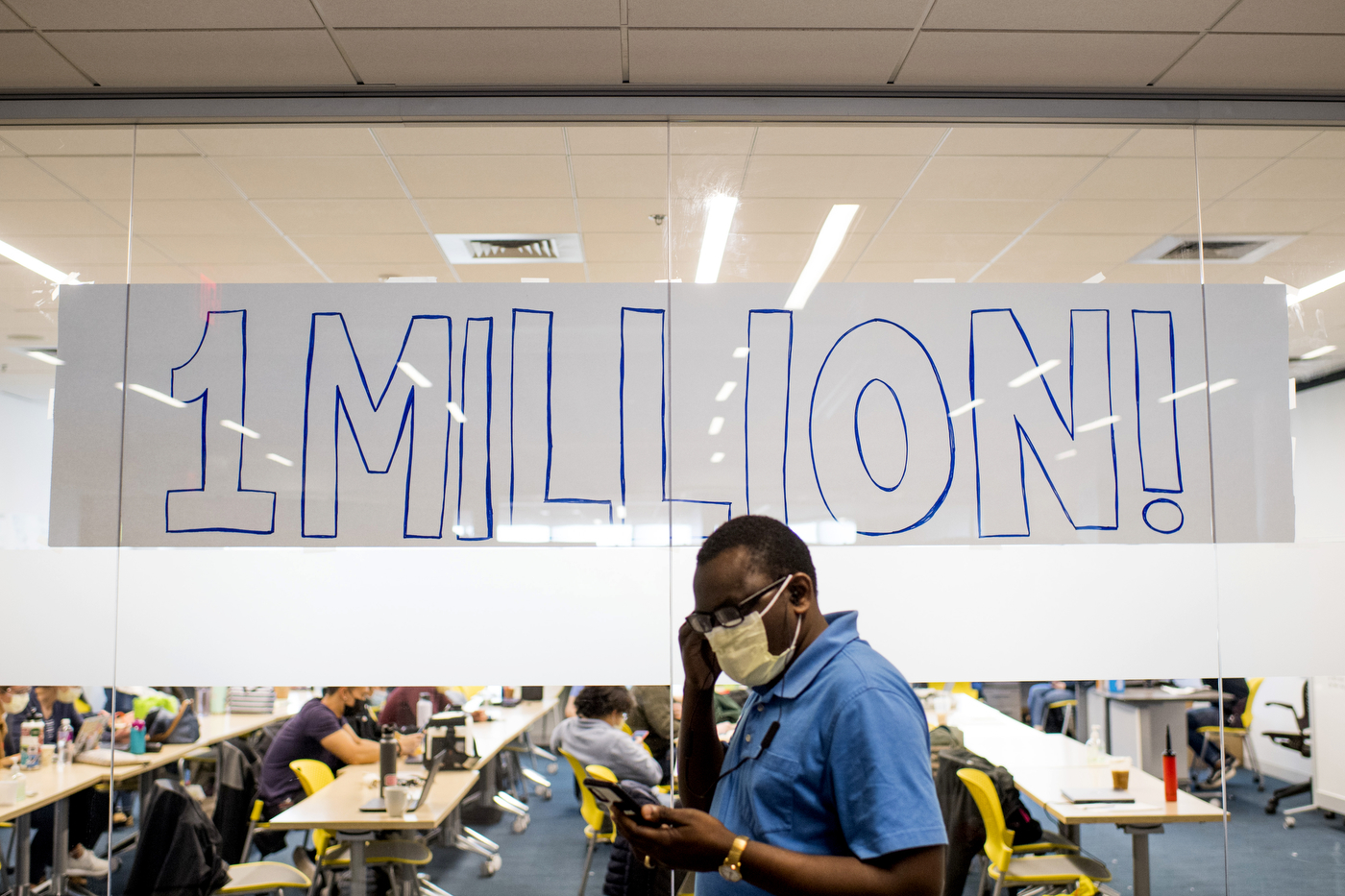
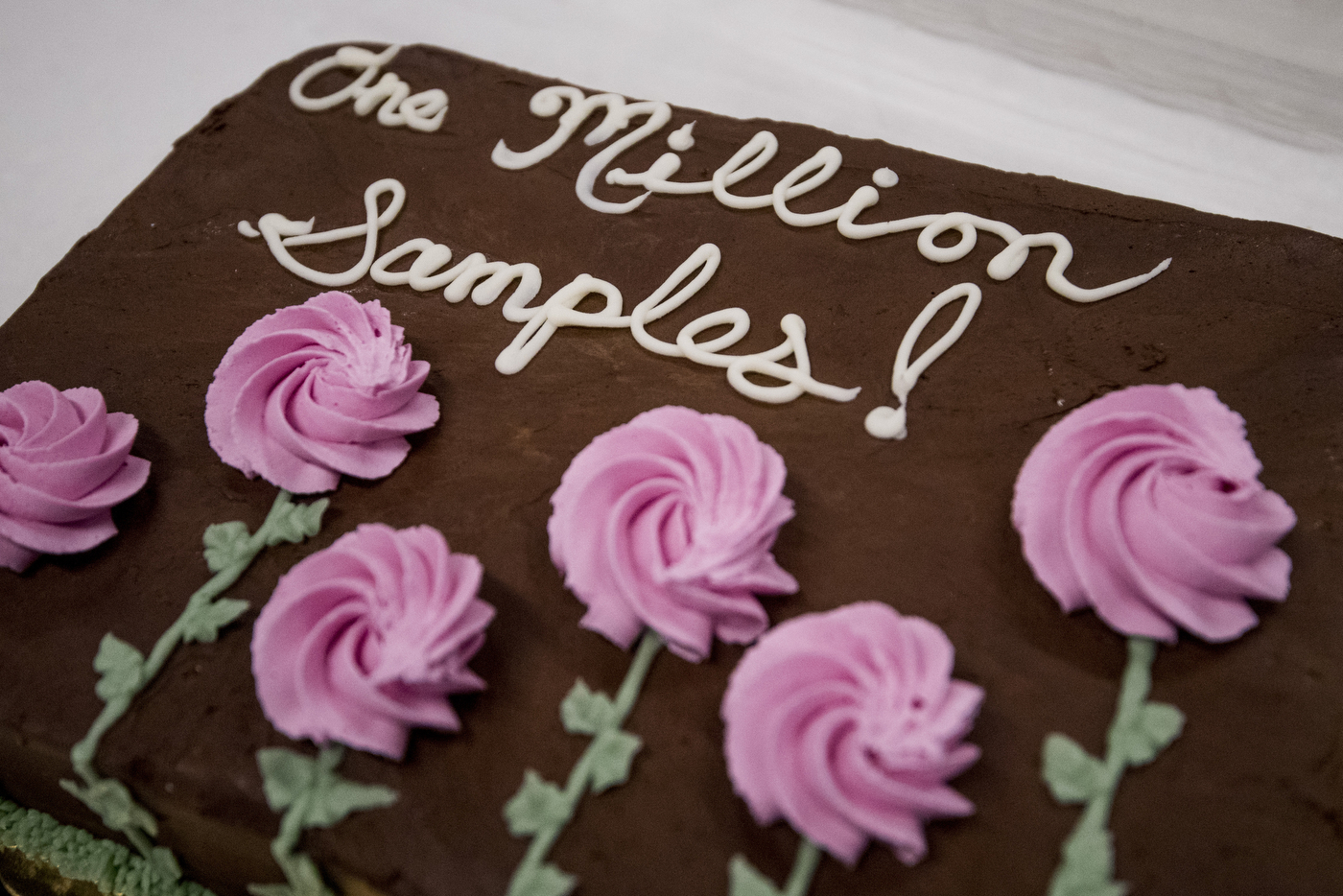
The process of setting up a lab with specialized scientists who can run complex protocols and instrumentation such as those needed for SARS-CoV-2 testing can generally take between 12 and 18 months. Northeastern built its Life Sciences Testing Center, and acquired the licensing necessary to conduct diagnostic testing for the coronavirus, in a matter of eight weeks.
It includes an area of 1,000 square feet separated into stations to receive samples. Lab personnel will pass the samples into a separate area within the lab where other scientists will use robotic machines to get the samples ready to undergo analysis.
The cake and balloons celebration was brief. Employees returned to work quickly to begin processing the next batch of samples.
“In this moment as we achieve our one millionth test, it’s important that we remain vigilant, especially as we go into the summer and fall,” said Auclair.
For media inquiries, please contact media@northeastern.edu.

